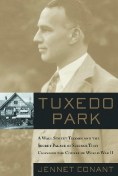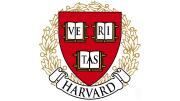 |
| Loomis, sometime in the 1930s |
The Secret Lives of Girls: What Good Girls Really DoSex Play, Aggression, and Their Guilt, by Sharon Lamb, Ed.D. '88 (Free Press, $24). Hold the sugar and spice. Girls are aggressive, sexual, and resilient, finds psychologist Lamband that's a good thing for them.
From Hardtack to Home Fries: An Uncommon History of American Cooks and Meals, by Barbara Haber, curator of books at the Schlesinger Library, Radcliffe Institute (Free Press, $25). Writing about food as a way of understanding American history, and finding in cookbooks a rich, neglected, historical resource, Haber answers such questions as why the food in Eleanor and Franklin Roosevelt's White House was so famously bad. She has a light touch, and this is a tasty offering.
Yiddish: A Nation of Words, by Miriam Weinstein, BI '79 (Steerforth Press, $26). A warm, wide-ranging, richly peopled, popular history of the language, by a freelance journalist who grew up in the Bronx post World War II. Enjoy!
Thinner, Blonder, Whiter, by Elizabeth Maguire '80 (Carroll & Graff, $25). The author is associate publisher of Basic Books, and this, her first novel, is a murder mystery about publishing, politics, and a seamy side of the Big Apple, and a book about women, interracial romance, and betrayal.

Abraham Lincoln and Civil War America: A Biography, by William E. Gienapp, professor of history (Oxford University Press, $26); and This Fiery Trial: The Speeches and Writings of Abraham Lincoln, edited by Gienapp (Oxford, $25). Here is a concise, readable history that focuses on the personal and political qualities that Lincoln brought to the task of waging a civil war. In This Fiery Trial, Gienapp has made a satisfying selection of the great man's own words, which amply support the historian's contention that Lincoln "is the one American president whose writings could be considered literature."
What Management Is: How It Works and Why It's Everyone's Business, by Joan Magretta, M.B.A. '83, with the collaboration of Nan Stone, Ph.D. '81 (Free Press, $25). Two former longtime editors of the Harvard Business Review aim in this jargon-free volume, of undaunting size, part story-telling, part theory, to synthesize a disciplinemanagementand to show why a grasp of how management works is important to any of us as we go along in life.
Crossing the Gods: World Religions and Worldly Politics, by N.J. Demerath III '58 (Rutgers University Press, $28). Demerath, professor of sociology at the University of Massachusetts Amherst, takes readers to 14 countries to explore relations between church and state. He says much that's timely about religious violence, religious politics, and "fundamentalist" movements and their leaders.
Women and the Machine: Representations from the Spinning Wheel to the Electronic Age, by Julie Wosk, M.A.T. '67 (Johns Hopkins University Press, $39.95). A professor of English, art history, and studio painting at the State University of New York, Maritime College, Wosk examines how women with machines have been portrayed during the past two centuries, illuminating how both sexes have viewed technological and social change. Her engaging cultural history is full of interesting pictures. Alarming Woman Driver, meet Rosie the Riveter.





